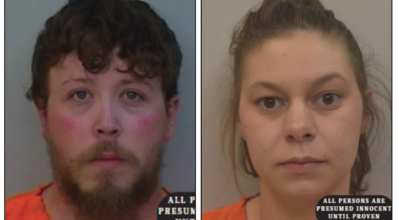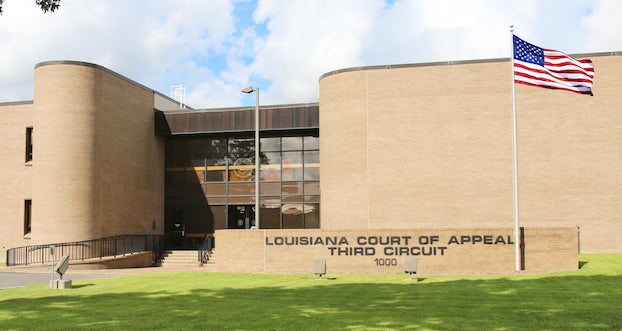Dickerson murder trial likely to go through weekend
Published 11:50 am Friday, June 21, 2013
Calcasieu Coroner Terry Welke testified in 14th Judicial District Court that Darrell Schaub died from cuts to his neck and shoulder.
Welke was testifying in the second-degree murder trial of Jon Talbert Dickerson, 31, who is accused of killing Schaub in March 2009.
Welke said he could not determine what kind of instrument was used to kill Schaub, 51.
A significant amount of blood found on Schaub’s arms indicated his carotid artery was cut, Welke said.
Schaub’s body was found March 16, 2009, beneath two mattresses behind the now-demolished Parkway motel in DeQuincy.
Prosecutors said he was killed on either March 9 or 10, 2009.
The trial will continue into the weekend — testimony is expected to resume at 8:30 a.m. Saturday.
Welke was one of four people to testify Friday — the second day of testimony.
Roxanne Baumgarten, with the Calcasieu Parish Sheriff’s Office, also testified, as did Lynn Miller and Rhalie Austin, both with the Southwest Louisiana Crime Lab.
Thirteen people have now testified for the prosecution, which is expected to turn the case over to the defense today.
Austin, who has since left the local crime lab for the state crime lab, testified that DNA from Schaub’s blood was found on the outside of Dickerson’s shoes and on the inside of his blue jeans.
DNA from Schaub’s blood was not found on the inside of his truck or at Dawn Vercher’s house, Austin said.
Vercher testified Thursday that a bloody Dickerson showed up at her house around 6:30 a.m. March 10, 2009, driving the truck.
Video taken by police the day Schaub’s body was found showed his disheveled room and his heavily decomposed body. Empty alcohol bottles were found in the room.
Schaub had a blood-alcohol level of 0.26 percent, Welke said, but that may not have been accurate because bacteria in his deceased body may have also released alcohol.“At the time of death, I imagine it was less than that,” the coroner said.
(American Press Archives)




